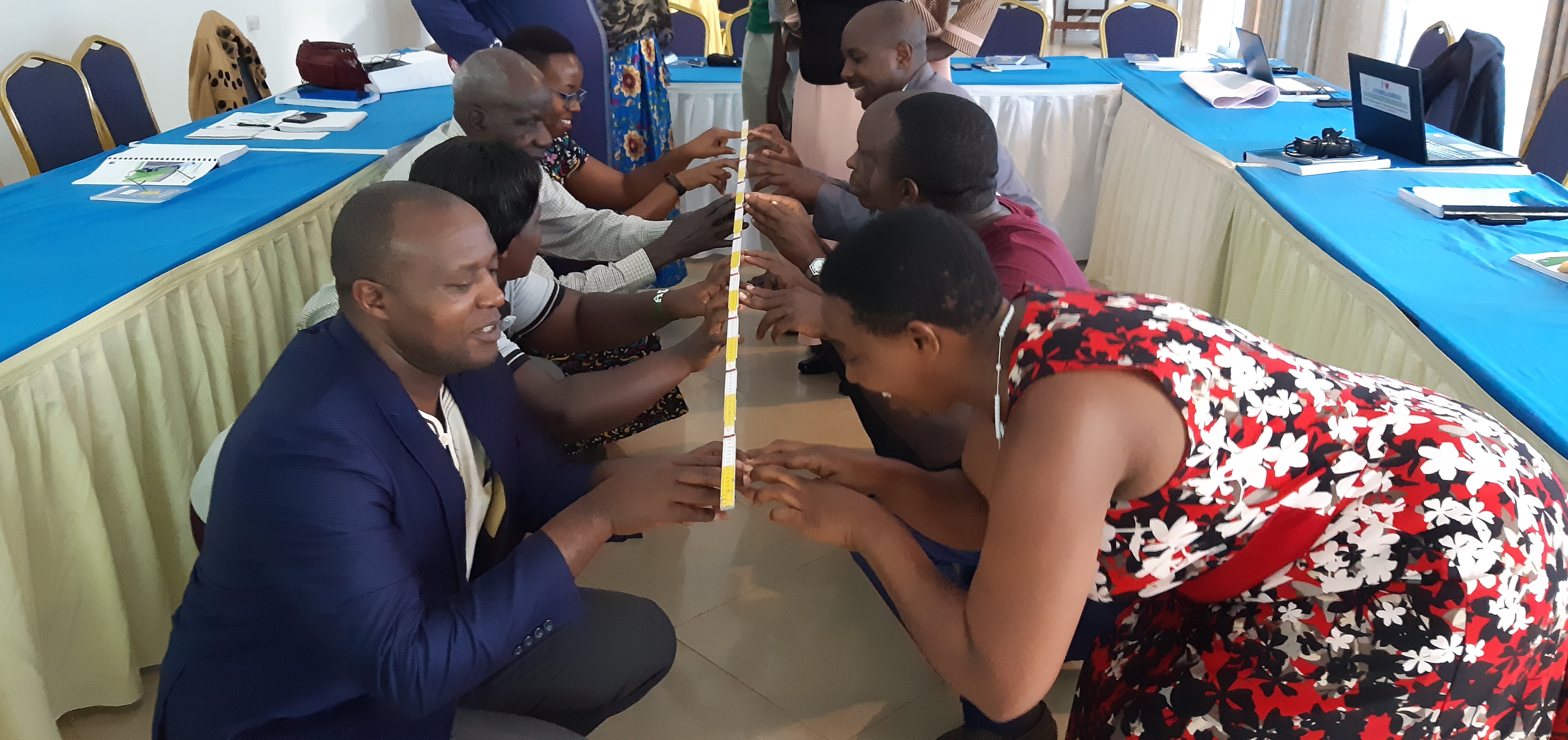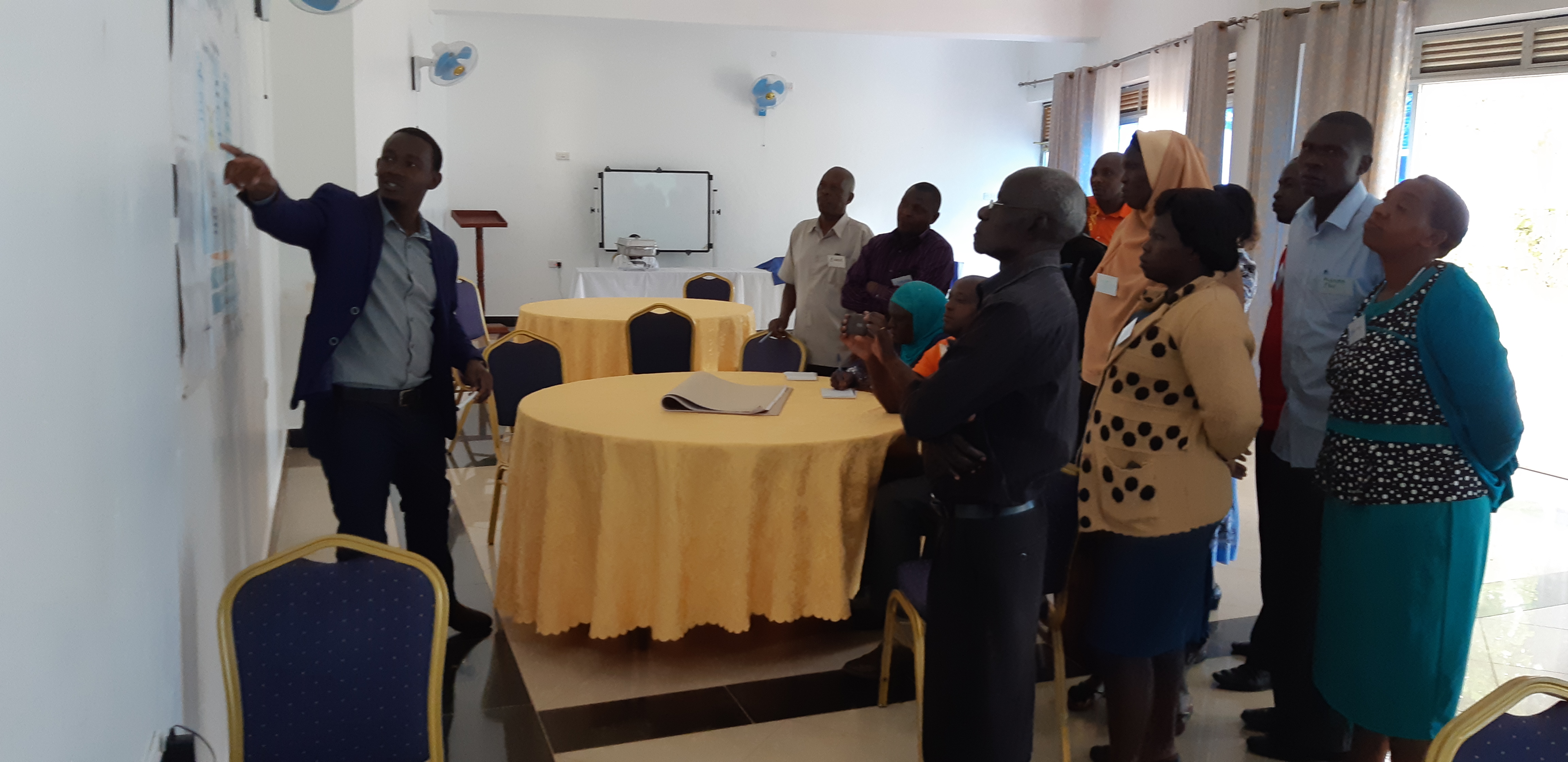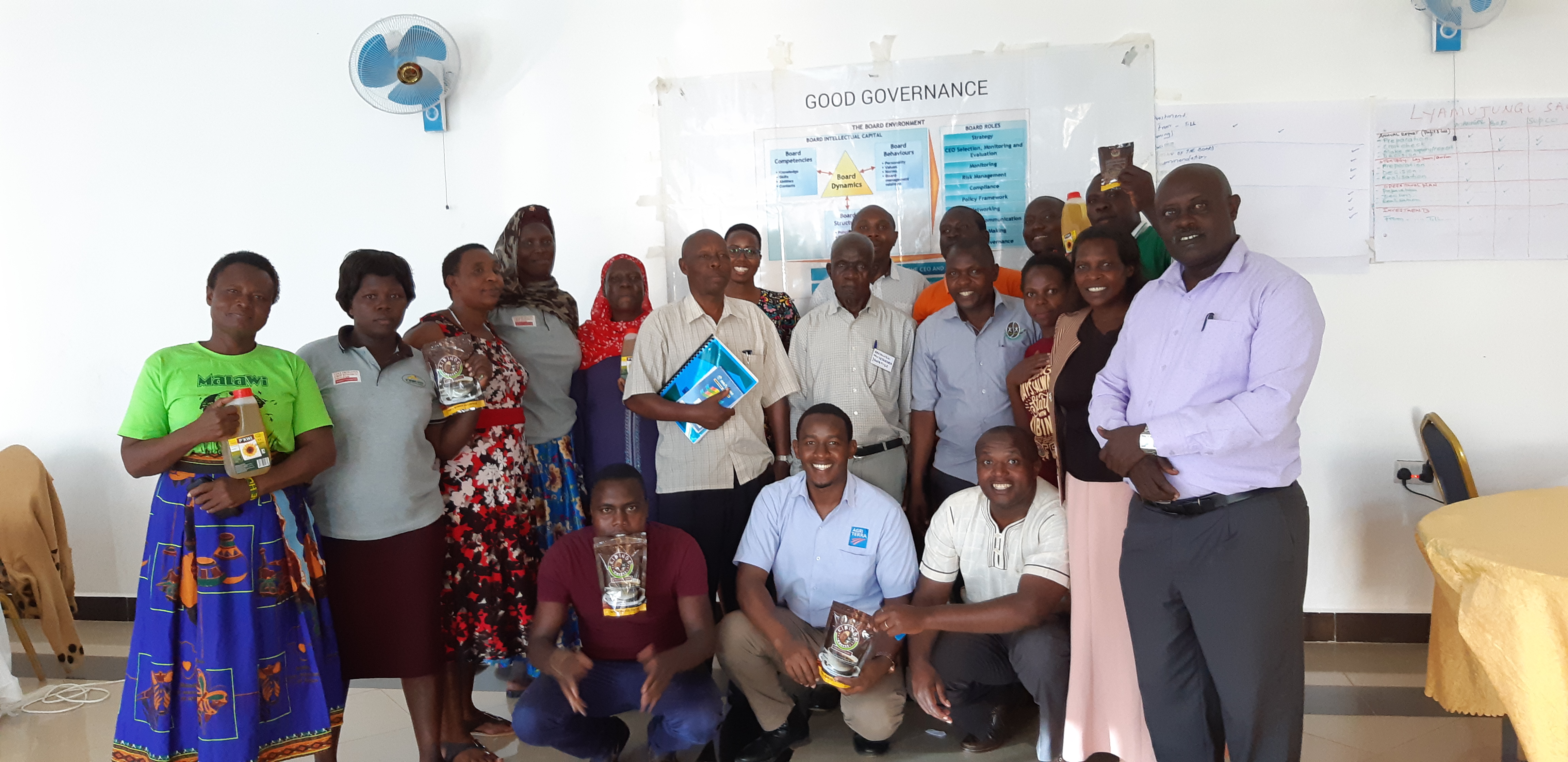Governance is the heart and motor of cooperatives
08-11-2019 15:08:44
Professional and well-performing cooperatives are governed by bodies formed by farmer leaders who have strong capacities and skills, know their roles and responsibilities and know the limitations of their duties as well.
Governance is the heart and motor of cooperatives after all. That is why Agriterra has developed a training programme on Cooperative Governance. During the four-day training, through a very interactive process, the participants gain more knowledge of good governance within their cooperative. Each cooperative completes the Governance Health Check, an instrument developed by Agriterra to indicate the status of governance in a cooperative. During the last day, a plan of approach is being drafted and presented.
This training programme is designed to strengthen an organisation's governance practice and build the skills and capacities of those individuals involved so they can:
- understand the governance structure and role and responsibilities of each governing body within the cooperative,
- reflect and adapt the cycle of recruitment, development and retirement of members of the board and supervisory board,
- adopt governance systems suitable for running the organisation,
- promote transparency and good governance within the cooperative.
During the training, the focus is on the exchange of experiences, best practices and mutual learning. Openness and willingness to share are crucial. The group’s composition reflects various functions: board members, supervisory board members and managers.

18 participants, of which 6 women from 3 cooperatives [Kibinge KCFCS, Lyamujungu SACCO (Lyamujungu Co-operative Financial Services Limited) and P’KWI (in full is the Popular Knowledge Women’s Initiative Farmer to Farmer Co-operative Society] participated in the Agriterra governance training, held between 21-24 October 2019, in Uganda.
All three cooperatives had recently undergone changes in leadership, which left the new members with a governance gap. Cooperative governance is the core of an organisation and the recent changes in governance justified the need for this training. The programme wasn’t only important but also timely.
All participants appreciated the performance of the training, having them in one place away from their homes and concentrating on one learning exercise. The participants equally learned that as much as the founder members should be recognised and respected, they should give adequate space to a new board of directors to function properly. Further noted, that after the Agripool expert's sharing of challenges and experiences, the board members appreciated the challenges everywhere. Sharing how each challenge was solved was a great motivator/lesson to those who thought had no answer. Lastly, participants acknowledged the different organisational cooperative structures other than their existing ones.

The quality of the action plans demonstrates how positively members were influenced during the training. Not only did it provide the participants with the essential knowledge and skills but equally helped in separating common practices from the laws as incorporated in the cooperatives act and Bylaws.
Participants said it’s nice to comprehend that some of the things not paid attention to are the critical points that can make or break the cooperative. They further noted that it is not about being a board member but knowing what, when and how to do act as a board member. Participants didn’t know that there is a need to set qualifications for one to become a board member
All in all, success was evidenced in;
-
Excellent and active participation of everyone.
-
Openness in sharing challenges and possible solution.
-
Appreciation of the different organisational structures with their roles and responsibilities.
-
Agripool experts’ capacity to share tailor-made challenges and engage the participants.
-
Respect for Annual general meetings to be held at the end of every calendar year so as to allow the budget to flow very well in the new financial year.
The Agripool experts
Two local Agripool experts were involved; Katongole Bells, Chairman in Abesigana Dairy Farmers Cooperative and Nabimanya Ericson Chairman in Nyamitsindo Dairy Farmers Cooperative. Their knowledge and relevant examples of the existing challenges cannot go without appreciation. What was highly demonstrated in challenge-sharing is the difference between ‘the normal practices and the law’.
It was remarked that the action plans were not the usual activities but rather critical points that would negatively affect the cooperatives if not paid attention to. Participants agreed to always hold and table the amendments in the Bylaws in the non-elective Annual general meeting in order to gain acceptance by all members. Some of the lessons learned were that board needs to be compliant to the set of rules, norms and values to be successful and that governance health checks are very vital as they provide leaders with internal controls and self-assessment.
The future of cooperatives is only bright with good governance and there is no doubt that good governance ensures delineation of rights and responsibilities of regulation and business. These are the preconditions for proper business development.
This joint training of different cooperatives undoubtedly helped leaders at different levels to share experiences and challenges. The facilitation team is confident that all participants return to their cooperatives with improved governance skills. All members are now more competent to make better decisions for the benefit of their members, which in turn will result in increased member commitment.
Facilitator: Muhangi James Business Advisor Agriterra
Critical friend: Maraka David Business Advisor Agriterra
